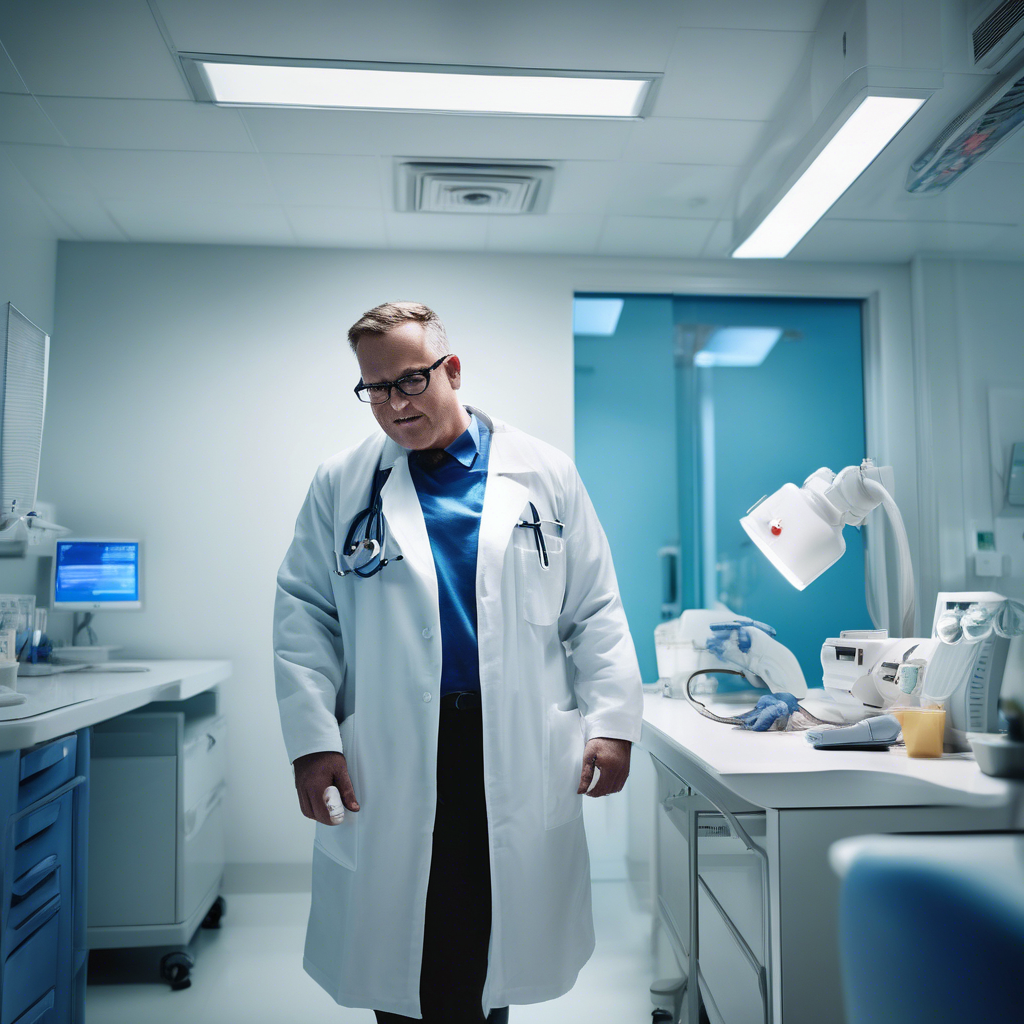Preventative Healthcare: How Regular Screenings Are Saving Lives Today

In today’s fast-paced world, taking the time for preventative healthcare may seem like a luxury. Yet, regular health screenings play a vital role in identifying potential health issues before they become critical. By proactively addressing health concerns, individuals can significantly improve their quality of life and life expectancy. With advancements in medical technology, regular screenings have become more accessible, providing a powerful tool in the fight against serious illnesses.
The importance of preventative healthcare is underscored by the increasing prevalence of chronic diseases, which are often manageable if detected early. Regular screenings not only aid in early disease detection but also contribute to substantial healthcare savings by reducing the need for extensive treatment down the line. This article explores the benefits of routine health checkups, offering insights into how these practices are saving lives today.
Throughout this article, we will delve into the core aspects of preventative healthcare, examining the types of screenings available, their benefits, and real-world examples of their impact. We will also provide actionable advice on how to incorporate regular screenings into your healthcare routine to ensure a healthier future.
The Importance of Regular Screenings
Regular screenings serve as a cornerstone of preventative healthcare. By identifying diseases in their early stages, these screenings can lead to better treatment outcomes and, in many cases, a complete cure. For instance, breast cancer screenings have been shown to reduce mortality rates by up to 40% among women aged 50-69, according to the American Cancer Society.
Moreover, screenings for hypertension, diabetes, and cholesterol are crucial in preventing cardiovascular diseases, which are leading causes of death globally. The World Health Organization reports that timely detection and management of these conditions can prevent up to 80% of premature heart attacks and strokes.
In addition to saving lives, regular health screenings benefit the healthcare system by reducing the burden of acute care. Early detection and treatment of diseases often result in less invasive and less expensive therapies, making healthcare more sustainable. This approach not only saves money but also improves patient outcomes and quality of life.
Types of Health Screenings and Their Benefits
Understanding the various types of health screenings is essential for taking full advantage of their benefits. Common screenings include mammograms, colonoscopies, blood pressure checks, and cholesterol tests, each targeting specific diseases and conditions.
Mammograms and Breast Cancer
Mammograms are crucial for early breast cancer detection. Studies have shown that women who undergo regular mammograms have a lower risk of dying from breast cancer compared to those who do not. This is primarily because mammograms can detect tumors that are too small to be felt, allowing for treatment before the cancer spreads.
Colonoscopies and Colorectal Cancer
Regular colonoscopies can prevent colorectal cancer by identifying and removing precancerous polyps. According to the American Cancer Society, colorectal cancer is the third most common cancer diagnosed in both men and women, but routine screenings can significantly reduce mortality rates.
Cardiovascular Health Screenings
Screenings for high blood pressure, cholesterol, and diabetes are essential for preventing heart disease and stroke. By keeping these conditions under control, patients can avoid serious complications and maintain a better quality of life. The Centers for Disease Control and Prevention emphasizes the importance of these screenings, highlighting their role in preventing millions of deaths annually.
Real-World Impact of Preventative Healthcare
The impact of preventative healthcare is evident in numerous success stories across the globe. In the United States, the introduction of widespread HPV vaccinations and regular cervical cancer screenings has led to a significant decrease in cervical cancer incidence. The CDC reports a 50% reduction in cervical cancer rates over the past 30 years, showcasing the power of proactive healthcare measures.
In the UK, the National Health Service’s (NHS) screening programs for bowel, breast, and cervical cancer have saved thousands of lives each year. These programs provide free screenings to eligible individuals, making early detection accessible to a broad population.
Preventative healthcare also plays a crucial role in managing chronic diseases like diabetes. Studies have shown that lifestyle interventions and regular monitoring can drastically reduce complications such as kidney failure and vision loss, demonstrating the far-reaching benefits of routine health checkups.
For those interested in learning more about the practical aspects of health screenings, we recommend watching our featured video. This resource provides a visual guide to the screening process, offering insights into what to expect during your next checkup and how to prepare effectively.

Frequently Asked Questions
What are the main benefits of routine health checkups?
Routine health checkups are essential for early disease detection, helping to identify potential health issues before they become severe. These screenings can lead to early treatment, which often results in better outcomes and lower healthcare costs. For example, regular blood pressure checks can prevent heart disease and stroke.
How often should I have health screenings?
The frequency of health screenings depends on your age, medical history, and risk factors. Generally, adults should have a full checkup every 1-2 years. However, individuals with risk factors for certain conditions may need more frequent screenings. Always consult with your healthcare provider to tailor a schedule to your needs.
Are preventative healthcare screenings covered by insurance?
Most health insurance plans cover preventive services at no cost to the patient, including key screenings like mammograms, colonoscopies, and cholesterol tests. It’s important to check with your insurance provider to understand the specifics of your coverage and ensure you’re maximizing these benefits.
What should I expect during a screening appointment?
During a screening appointment, you can expect a series of tests and assessments based on your age, gender, and health history. For instance, a general checkup might include blood pressure measurement, blood tests, and a physical examination. The goal is to assess your overall health and detect any potential issues early on.
Can lifestyle changes reduce the need for frequent screenings?
While healthy lifestyle changes such as a balanced diet, regular exercise, and avoiding smoking can reduce the risk of certain diseases, they do not eliminate the need for screenings. Regular screenings are still essential, as they can catch diseases that have no obvious symptoms, ensuring early intervention and treatment.
Conclusion
Preventative healthcare and regular screenings are indispensable in the modern healthcare landscape. They offer numerous benefits, from early disease detection to cost savings, and significantly improve patient outcomes. By incorporating these practices into your routine, you not only safeguard your health but also contribute to a sustainable healthcare system.
To take full advantage of the benefits of routine health checkups, start by discussing your screening needs with your healthcare provider. Together, you can develop a tailored plan that addresses your unique health profile, ensuring you receive the right tests at the right time.
Embrace a proactive approach to your health today and encourage others to do the same. With preventative healthcare, we can continue to save lives through prevention and build a healthier future for all.
Further Reading
- The Role of Vaccinations in Preventative Healthcare
- Understanding the Impact of Lifestyle Changes on Chronic Diseases
- How to Create a Personalized Health Screening Schedule




